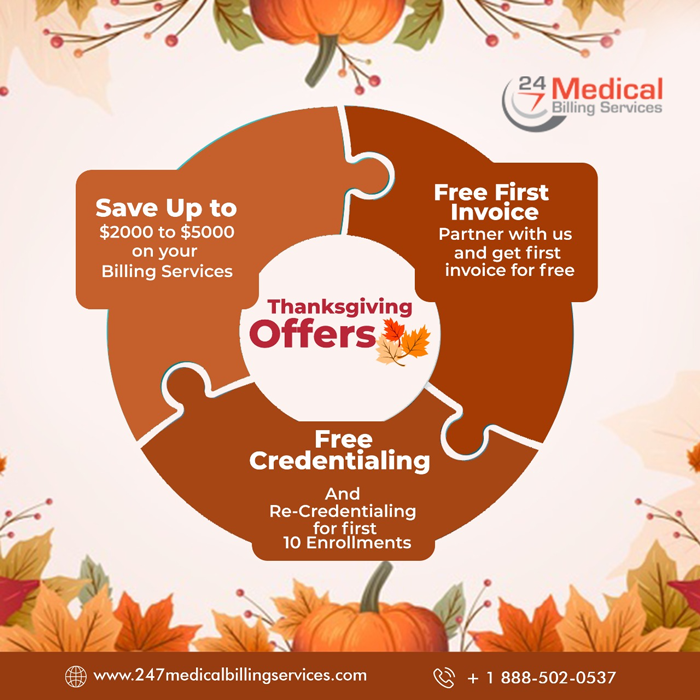A Detailed Guide on Pharmacy Billing
The current U.S. health care pharmacy billing services for patient care services is a complex system that frequently makes it difficult for pharmacists to manage the revenue cycle for the various patient care services. As pharmacy claims differ from hospital claims in some ways, such as HIPAA compliance, the inherent challenges necessitate a robust admin and data-related protocol that can add value to the pharmacy billing process. A streamlined process ensures that data handling deficiencies can be effectively managed by an expert team of pharmacy billing professionals. Let’s have a deep dive into the few aspects as well as detailed guide on pharmacy billing:
Pharmacy Billing Landscape Evolution
The Affordable Care Act has increased the number of people with health insurance, making data management even more difficult. The increasing use of healthcare services, as well as the huge demand for prescription drugs in the United States, which is higher than in any other part of the world, and the lack of a universal health plan, have all had an impact on healthcare data management.
- Procurement and inventory costs:
Data is manually entered during the procurement and inventory maintenance stages to avoid data handling errors. The numbers that are uploaded from the distributor to the pharmacy’s system are manually checked to ensure that they do not have an impact on revenue cycle management.
- Transitional Care Billing:
Once patients are discharged from a skilled nursing facility, transitional care management is a type of service for billing care in collaboration with physicians and care providers. Patients may be released from an inpatient hospital or observation setting at times, and non-physician providers such as pharmacists are frequently offered this service.
- Pharmacy Master charge description:
It is a key component of the pharmacy billing cycle and serves as the starting point for billing patients and payers. It consists of a list of billable items that require attention to ensure there is no revenue loss. The key to doing so is converting pharmaceutical quantities of purchased medications into patient administered quantities. A dependable pharmacy billing service should ensure that costly errors are avoided and time is saved during information transfer.
Types of Pharmacy Billing:
When the various processes are handled professionally, pharmacy management is best understood. Pharmaceutical industries can better focus on their core business competencies with a comprehensive and customized pharmacy billing service. Before selecting a dependable pharmacy billing service, it is critical to understand that pharmacy billing can be divided into the following categories:
- Home Care pharmaceutical billing:
The healthcare system in the United States has a large number of home-bound patients, and this client-base necessitates data handling and modernization in order to keep detailed guide on pharmacy billing current. Pharmacy billing experts may have to visit patients’ homes to collect bills, but there is no room for error in data handling and pharmacy billing when a professional pharmaceutical billing service is in charge.
- Managed care:
Did you know that managed care is frequently run out of large hospitals and care centers, with bills reimbursed using the bundled payment model? This highlights the importance of maintaining non-clinical paperwork and report management to ensure that data is handled precisely. Billing for pharmacy services allows pharmaceutical companies to concentrate on drug dispensing while leaving non-clinical paperwork to a professional team. End-to-end medical coding and billing services ensure accurate pharmacy billing.
- Radio:
One of the most prominent ancillary therapy services that will require billing and coding assistance to ensure maximum deliverables is radio drug service. Pharmaceutical services delivered via radio will benefit greatly if pharmacy billing services are obtained from a reputable provider.
Pharmacy Billing Challenges
The pharmaceutical industry is a highly competitive and dynamic sector of the healthcare industry. Transparency and optimization are critical for maintaining a competitive edge and thriving in the face of stiff competition. They aid in the medical billing and pharmacy billing processes by reducing erroneous data, which can have an impact on revenue cycle management.
- Regulatory Changes:
Obstacles such as regular updates and changes in the healthcare industry may necessitate ongoing training for pharmacy billing and coding personnel. The healthcare staff should be aware of the maximum dosage requirements for the drugs, and the billing software should be updated on a regular basis. The most recent government rules, state laws, and drug codes should be followed.
- Claim Denials:
Because pharmacy billing may not process vaccine claims that are covered by medical benefits, the pharmacy billing system is not very flexible. Furthermore, incorrect information that results in claim denials may have a global impact on the billing process for pharmacy services. This could also result in significant revenue loss in billing.
- Pharmacy Vigilance:
Patient satisfaction is extremely important in the healthcare industry. Pharmacy vigilance is essential to stay informed about side effects, such as allergies caused by specific drugs, to ensure that patient satisfaction is not jeopardized in any way. Low quality patient satisfaction can result in significant revenue and practice loss.
Adequate Actions in Pharmacy Billing
Undoubtedly, healthcare service providers are investing more time and money to excel in service delivery and maintain optimal revenue through transparency and optimization. A strong practice management system is thus required, as it allows for consistent account recovery while stabilizing cash flow.
Adequate and consistent billing staff training, adherence to regulations and compliance, and reliance on outsourced pharmacy billing services to provide a professional service can all add value to the revenue cycle and assist pharmacies in obtaining the desired revenue. It is critical to plan ahead of time in order to maintain an optimal revenue cycle.
Why Choose to Outsource 24/7 Medical Billing Services?
A trained and experienced team of pharmacy billing experts at 24/7 Medical Billing Services capture every minutest detailed guide and provide comprehensive pharmacy billing services to help healthcare practices manage revenue with greater accuracy. The team includes experienced pharmacy billing specialists to handle all aspects of pharmacy billing, including verification, submission, and follow-ups.
Read more: All You Want To Know About Pharmacy Billing



